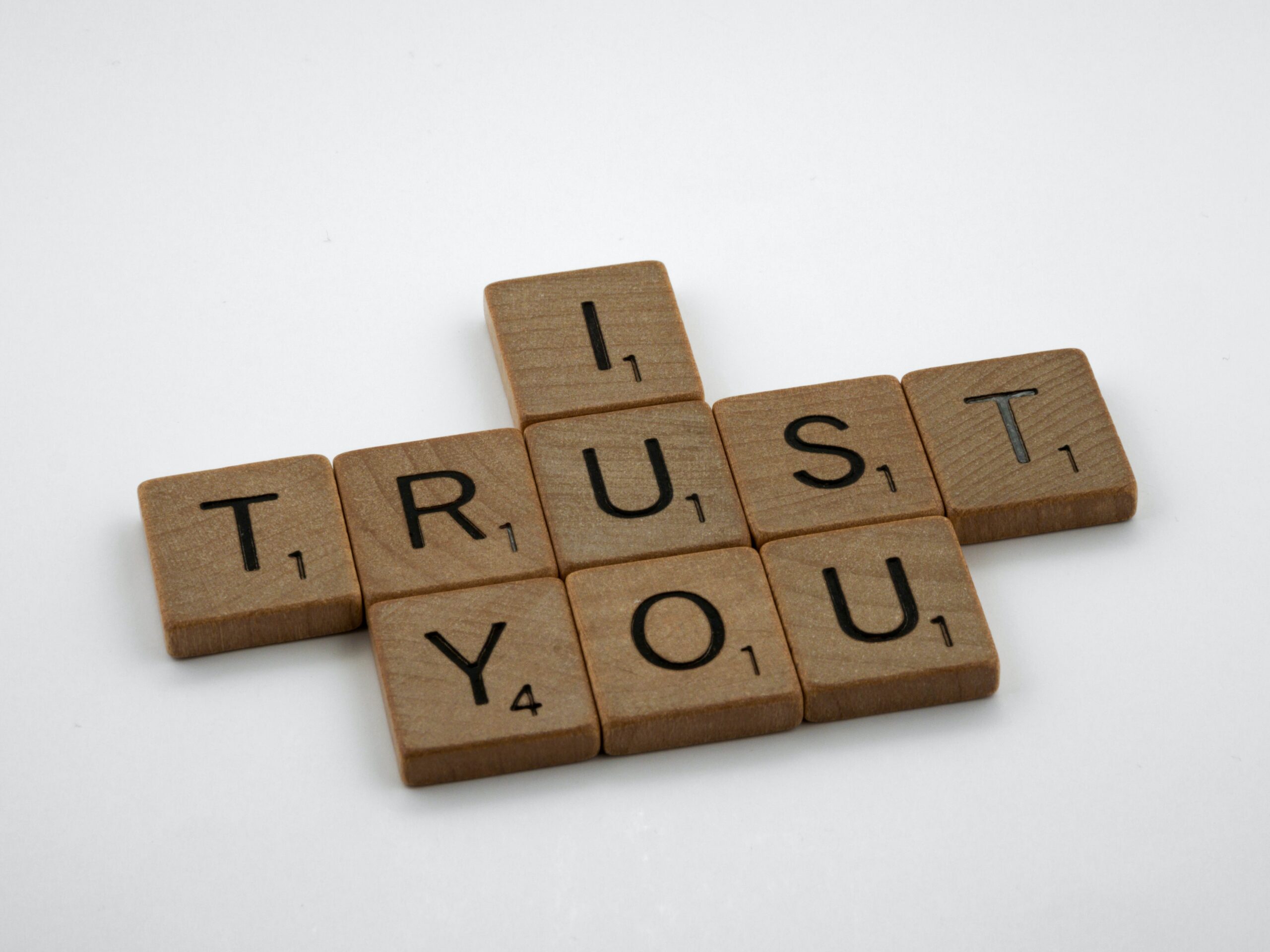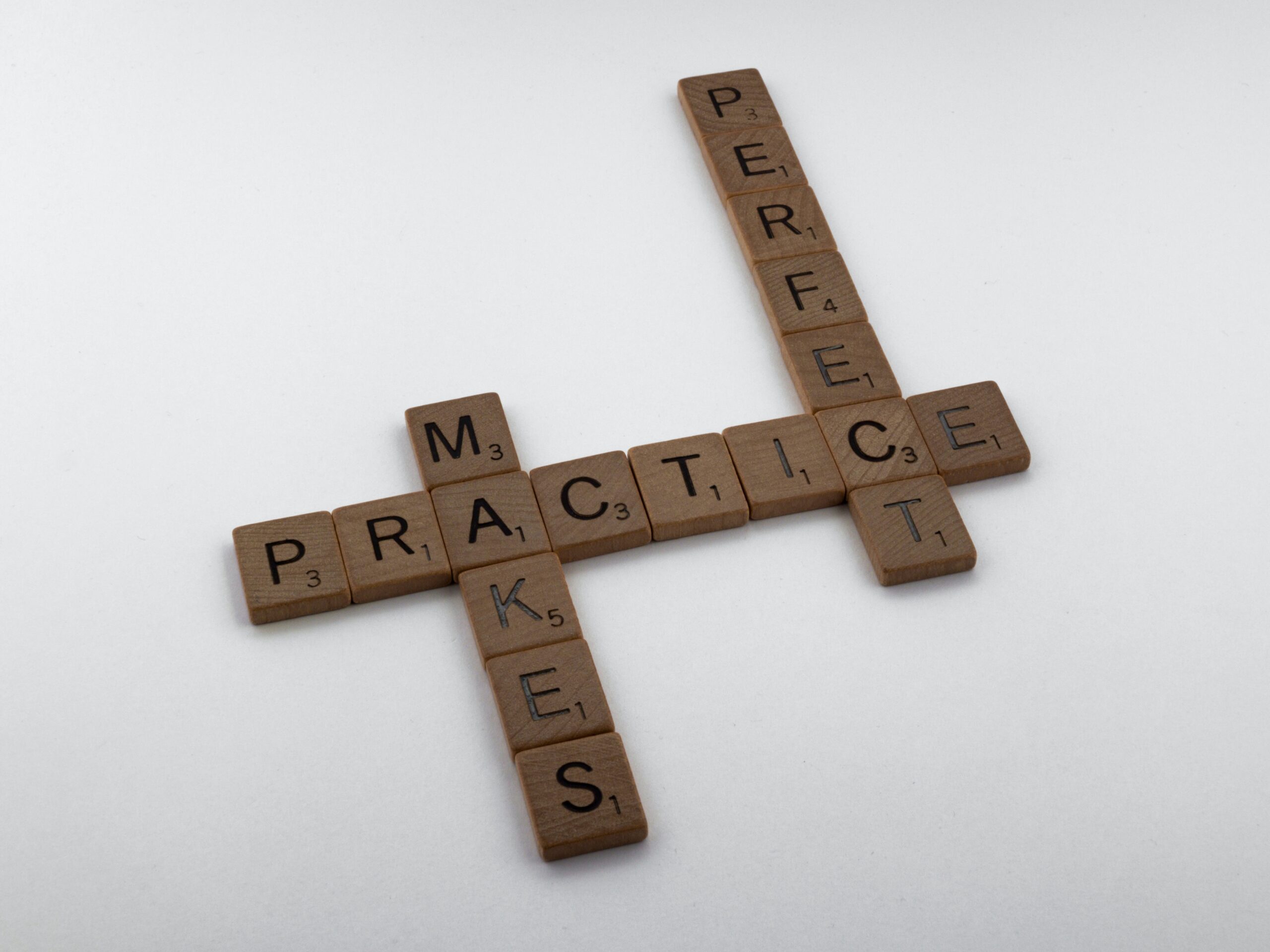
Leadership, Life Direction and Purpose, Well Being
How to Build Confidence – 3 Elements to Consider
Developing a healthy sense of confidence, whether it’s in your leadership, or whether it pertains to your career direction, is important. We often report feeling like we lack it. But how to build confidence? It’s intangible and fuzzy – it’s nice to say we need it, but what do we do about it? There are three elements critical to building confidence in my experience as a coach. As I describe these, think about for yourself which of the three you would rate as high, and which you would rate as low. How to Build Confidence – The Three C’s of Confidence Clarity – Direction is important, and to the extent we lack it, we can feel rudderless in our lives and in our leadership. Do you have a vision for your career? Do you know who you want to be as a leader and how you want others to experience you? I remember when I was making my career change from accounting to leadership development back in 2012, I knew what I wanted, I had a direction. I might have had no idea how I was going to get there, but the passion I felt for the vision I was cultivating kept me going. Clarity is inspiring. Once we have it, we can take steps to materialize our vision. I often have clients think about their values as a method of making a way out of the fog. It can sometimes feel like an arbitrary exercise, but it’s not. Our values guide the choices we make, and we all have values, whether we are conscious of them or not. One of mine is autonomy. It came into play recently when I was faced with a difficult business decision. Tuning into my values helped to navigate this situation, knowing that I was tuning into my own True North. Competency – Building skills builds confidence. Every job has competencies associated with it. Some are technical, and some are what folks often refer to as the softer skills. Things like communication, presentation skills, time management. Leadership does as well. Good leadership is about two main things – building relationships while getting tasks accomplished. We often sacrifice one for the other. Maybe I over-focus on delivery and ignore important opportunities to coach and mentor my team. Or maybe I focus too much on relationships at the expense of deliverables. Good leadership requires balance between these two elements. How do you stack up on the competencies for the role you’re currently in? Do you even know what they are? What are you strong on? What needs some work? When we’re feeling less confident, we often try to hide our inadequacies. We’re ashamed of them. We may shy away from things that will challenge us because we’re afraid to fail. The more willing we are to cultivate a growth mindset by leaning into our strengths and working to improve our weaknesses we better we will feel. Movement in this direction generates energy and motivation. Compassion – […]
July 14, 2023
|
4.7 min read

Leadership, Mindfulness, Relationships
How Trustworthy is Your Leadership?
In a class on leadership I was facilitating last week, we ended up talking a lot about trust. A worthwhile endeavor for sure. I recall years ago when I read Stephen Covey’s book, The Speed of Trust, which highlighted how building an effective foundation of trust enables work to happen much more quickly, efficiently and effortlessly than it ever would if trust was lacking. A low trust environment can lead to burnout When we think about the relationships in our life – personal or professional, we often evaluate them based on whether we think we can trust the person. “I don’t trust him as far as I can throw him.” This is especially important if you’ve ever worked for a leader you didn’t think you could trust. My virtual office is often full of career and leadership coaching clients experiencing burn out due to prolonged exposure to an untrustworthy leader or team environment. And it takes me back to times in my career where I felt like I was walking on pins and needles all the time, lest I upset the apple cart. It takes a toll. Especially on our bodies, as we often find ourselves in a state of hyper alert all of the time. The fight or flight response is constantly triggered, stress hormones like cortisol are constantly pulsing through our bodies, and at some point we finally crash and burn. A simple equation for building trust Folks often pontificate about the importance of building trust, but few get into the nitty gritty of how you do it. And it’s more than just being knowledgeable in a certain skill or topic area. Competency and credibility are important, but it isn’t the whole equation. And there is an equation for trust by the way. I ran across this simple trust equation years ago, and here it is: C + R + I _______ S.O. The trust equation explained C stands for Credibility. Or in other words, “I can trust what she says about x…”. Do you know your stuff? Have you built the technical skills and competencies for the task at hand? Do you have the necessary leadership skills and competencies to guide your team, things like giving feedback? Setting a vision? Delegation? Holding others accountable? R stands for Reliability. Or in other words, “I can trust she will follow through.” What’s your level of integrity when it comes to follow through currently? Do you make promises you have no intention of keeping? Or perhaps you have every intention but you find yourself saying yes to every request that crosses your path. You overpromise and underdeliver. Good intentions are wonderful but will ultimately snooker you if you can’t come up with the follow through. I stands for Intimacy. Or in other words, “I can trust I can come to them with my concerns and problems.” To what extent are you an approachable leader? Do others seek you out for your counsel and your advice? How effective are you at […]
June 20, 2023
|
5.4 min read

Leadership
Know your worth if you want to master your leadership
Every once in a while, I ask a client a very interesting question – “What gives you your sense of self-worth?” I’m often met with a blank stare. What usually prompts me to ask that question in the first place, is the coaching client is struggling with one of what I call the 3 reactive traps. These are the places we go to when our sense of identity or worth is threatened, our amygdala gets hijacked, and we feel we are under attack. The Three Reactive Traps Approval – I define my self-worth based on whether people like me and approve of me. I aim to please and will turn myself into a chameleon. Whatever I think the other person wants and needs I’ll be! Boundaries, what are they? It’s more important that I do whatever it takes to win someone over. Recognition and appreciation – it’s more than a nice to have, it’s a must. It’s my drug. It’s only then that I’m safe. Conflict is scary and I’ll do anything it takes to avoid it. Conflict is for difficult people. I’m a people person. I’m flexible. Other people do conflict. I do what it takes to make it work. Knowledge – I define my self-worth based on my smarts. I’ve got the answer – so you’re better off listening to me. If you don’t, I’ll tell you defensively or with an air of arrogance why you are wrong. You’re criticizing my work? No way! How dare you! It’s not my fault, someone else is to blame. Or apathy is the name of the game when I’m feeling challenged or ignored — I just can’t be bothered, you didn’t listen to my advice, so I’ll stay away and disengage. The project is doomed anyway, and I don’t want any part of it. The less I’m associated with this crappy piece of work, the better off I am. You made a mistake? I’ll be the first one to point it out and only highlight only the negatives. If someone receives the feedback badly? Who cares? Most people just aren’t that good at their jobs and they can’t take criticism. Accomplishments – I define my self-worth based on my achievements. I’m out to prove that perfectionism isn’t an illusion, and I will get there or die trying (and take the entire team down with me in the process). If the proverbial ‘you know what’ hits the fan, no problem, I’ll just do all the work. And if I think about it, it’s easier if I do, because then I know it will be done right. You have an idea on what would work best? Forget it – we don’t have the time and it’s better if you just do what I say. Celebrating success – what’s that? It’s on to the next thing! There’s always something next to do and we can’t drop our pace. It’s about getting ahead. I need to get ahead and prove how successful I am. The […]
May 26, 2023
|
6.5 min read

Career Coaching, Leadership
Sorry, there is no perfect career. You still have to do your inner work.
There’s a common misconception floating around currently where passion and purpose is concerned and the whole decision of career path. “When I find my passion, my job won’t feel like work.” “When I’m following my purpose, I’ll be fearless. I’ll know I’ve found the right career path. The things that used to scare me just won’t anymore.” Don’t get me wrong, tapping into passion and purpose is great. A lot of my career coaching and leadership coaching work is geared at helping folks recognize these things for themselves and connect to them in a meaningful way. But as far as the above statements are concerned – I hate to burst your bubble, but they just aren’t true. I’ll give you an example. I love teaching, I love facilitating. It’s when I’ve had probably the most moments in actual flow – those moments you lose yourself, time passes and you’re not watching the clock. These are magical moments, as you’re completely present, mindful and 100% engaged in what you’re doing. I often suggest coaching clients think about times when they have entered this state as a way of connecting with activities and topics that bring joy. The more you notice a correlation between flow moments and a certain activity, it may be a good career path option to explore. There is no career path that will deliver constant flow But that doesn’t mean shifting your focus to that activity or career path will automatically bring you into an instant state of flow 100% of the time. The human experience is way more complicated than that. I’ve also had a lot of scary moments as a trainer and a facilitator. Difficult participants, difficult clients, difficult colleagues. Logistical challenges where a room hasn’t been ready, the materials failed to show up or a flash flood was suddenly headed my way with a room full of participants and no idea what to do. Add to this my personal favorite – incomplete or incoherent course content that’s only been delivered to me a day or so before a program and I’m expected to pull off a miracle with no time to prepare. Before every delivery I’m a little bit nervous. There are often insecurities that come up – What if I don’t know enough? What if I get asked a question I don’t know the answer to and look stupid in front of participants? What if I can’t handle the challenging dynamics in the room? Things are often coming at a facilitator a million miles a minute. What if I miss something? What if the feedback is negative from the participants and they express it was a waste of their time? What if this team or coachee doesn’t get the outcome they’re looking for? I can’t recall a single delivery where I haven’t felt at least a twinge of anxiety in the run up to a session starting. And yet I do it anyway. Day in and day out, over and over again. I show […]
May 17, 2023
|
6.2 min read

Authenticity, Leadership
Being versus Doing – What is a leadership purpose statement and how do I create one?
In many of the leadership courses I teach, I talk a lot about the difference between the being and the doing of leadership. The doing is the day-to-day stuff we get caught up in. It’s the systems or process, tools or models that we look to for guidance. And being the task and accomplishment-oriented humans that we are, we often focus more on the doing side rather than the being. As a leadership trainer I often hear this question: “What do I do when I need to x?” X could be giving difficult feedback, a tough performance conversation, realigning expectations, inspiring and empowering my team to deliver, the list goes on and on. And there are several tools and techniques out there that give advice on what to do relative to these challenges. Tools and techniques are helpful and I’m not underestimating the value they can add. But a participant of mine summed it up very well the other day when she said: “There’s no checklist for leadership. And people can see straight through you when you’re just going through the motions.” She’s right by the way. People ultimately respond to who you are being in that moment versus what you are doing or saying. We have this uncanny knack to sense when someone’s intentions aren’t aligned with their actions, or they’re saying the so called “right” thing to manipulate or control. So the leadership coaching question for today is, Who do you want to be as a leader? Who do you want to be as a leader? I often have clients write a leadership purpose statement. A lot of times folks struggle with this, and I accept the fact that it can feel awkward. But I’ve often mused that a mindful life is an intentional life. So why should your leadership be any different? Step 1: What’s my personal purpose? One way to go about this is to have a think about your own personal purpose first. This includes questions like: Maybe there is something that ticks all these boxes for you, or maybe some of the above. There may be several things that you love, but you may not necessarily be able to prosper at them. Perhaps you honor that by pursuing a hobby or volunteering your time to a cause you are super passionate about. There’s no right or wrong way of responding to these prompts. The key is to have a think about them and see what comes up. See where you may be able to find the intersections. Step 2: What goals do I have for my leadership? And then link this to the act of leading by asking yourself: Once you’ve had a think, time to put pen to paper and create your leadership purpose statement. Maybe your statement looks something like this: “I’m excited to work on the challenges of climate change and that gives me a sense of personal purpose. I want to lead my team to innovate and tackle this challenge […]
April 20, 2023
|
4.2 min read

Emotional Intelligence, Leadership
A quick tip for maintaining your leadership presence: How to manage emotions under pressure
One of my participants asked the most brilliant question on a leadership training this week. We were talking about the importance of managing your emotional intelligence as a leader, which is so critical considering it’s the leader that sets the tone of a team. To the extent that the leader of a team shows up as frustrated or anxious, it creates a multiplier effect that spills over onto everyone else, and the problem is that your team isn’t going to do their best work in an environment like that. “I know it’s important to reflect. Meditation and journaling are helpful. Exercise is helpful. Sleep is important I know. But what do I do if say I’m in a meeting, and it’s tense. And I find my emotions getting triggered. Let’s say I get angry because the person I’m dealing with is inflexible and difficult. What can I do to manage my emotions then?” I love this question. And it brings up a great point. A lot of the stress management and emotional management techniques out there are aimed at what I call maintenance. Establishing healthy practices that enhance our overall quality of emotional well-being. And these are fantastic as they greatly reduce the overall probability that we will get triggered at an inopportune time. But we all have a bad day. We all have a bad moment. We’re human after all, and the human experience is full of emotions, some on the positive side, some on the painful and so called “negative” side. That’s the inherent duality of life. And no matter how subtle our reaction to something that triggers us, it still triggers us. Maybe we don’t say what we would really like to say or what we’re thinking in the moment – I’m scared, You’re wasting my time, You’re an idiot, I’m an idiot, This is stupid, but it still affects us and the quality of the interaction we are engaged in. We tense up, they tense up. We tune out, they tune out. Energetically something is going on, something is not being said, but tension hangs in the air, and you could cut it with a knife. So back to the amazing question. What do I do? The following practice is one that could be helpful. You can use aspects of it in the moment if you find yourself in a pinch, maybe you just utilize the pause step at that critical moment when you’re really triggered and you can also utilize it as a diagnostic tool to help build awareness. How to manage emotions in a difficult situation – a 3 step process Pause – Take a couple of deep breaths. If you’re in a meeting no one has to know. If it’s appropriate you might excuse yourself for a minute or two. Then ask yourself a question or two: Whatever the feeling is, it’s valid. Just acknowledge it. There’s no need to blame or shame yourself for feeling whatever is coming up. You might tell […]
April 13, 2023
|
4.8 min read
Leadership
Shelley Pernot, otherwise known as the Irreverent Guru of Mindfulness, muses on life, leadership and everything in between. Your one stop shop for career tips, leadership tips and daily inspiration!

It was a privilege to work with Shelley as my leadership coach! The process was structured and yet flexible enough to meet needs as they arose. Shelley helped me to grow, learn more about myself, and to really achieve what I set out to accomplish. We worked on planning, navigating a promotion successfully, and so much more! I experienced many successes as a result of working with Shelley, she has great resources, knowledge, and really helps with setting the foundation to this coaching work. She won’t let you down!
Stacy Campos
Regional Coordinator
Having the opportunity to have Shelley as my Leadership Coach could not have come at a better time in my career. I was recently promoted to CFO and was new to the Senior Management Team. Shelley helped me navigate joining the team as well as helped me to determine who I wanted to be as a leader. The Leadership Circle Profile helped our team to discover our blinds spots and to be able to understand each other better. Working with Shelley not only has affected my professional life in a positive way, but also my personal life. She helped me take leaps and has given me the resources to continue this journey of self-improvement. If you’re looking to find more about yourself and how you can be the best version of yourself, I highly recommend working with Shelley.
Kristen Spedale
CFO
I have been working with Shelley for the past 2 years on my leadership development journey. What I thought would be a straight line, I soon learned with Shelley’s guidance, was a winding path with several ups and downs along the way. Shelley supported me as I took a deep dive into my professional and personal history and learned how it affects my approach and my perceptions. She helped me to slow down and recognize certain behaviors and understand that I can pivot in the moment or try again next time. Ultimately, my work with Shelley turned out to be so much more than what I expected. Her approach to coaching was exactly what I needed.
Nicole Naassan
Senior Vice President, Consulting
I’ve learned more about leadership in the past six months working with Shelley than I have in my 10+ year career. She is an incredible coach with many tools in her toolbox. The guidance and mentorship I’ve received from Shelley has been life-changing. She will challenge your limiting beliefs and inspire new ways of thinking.
Margaret Soltis
Creative Director
I highly recommend Shelley if you need a coach, thought partner, and guide as you consider the next steps in your career. She provides practical tools and advice to help launch your career exploration, but most importantly, she is an expert at helping you cut through the noise of your limiting beliefs. At the end of our time together, I had a much clearer vision of what I wanted in my life and a plan to make it happen. My only regret is that I didn’t find her sooner!
Elizabeth Magnus
My career coaching sessions with Shelley have brought me back to living. It’s been contagious, spreading throughout my personal and professional life. I now have the building blocks I need to continue setting healthy boundaries, the freedom to show up as my authentic self, and an adaption of a growth mindset that has allowed me to make bold decisions and try new things. I’ve discovered that there’s always another way and how to eradicate barriers that lead to tunnel vision. These sessions with Shelley have been a great gift and have given me the momentum I need to continue the journey to be my best self.
Teasha Houston
Art Director
It is amazing to think where I was only 10 months ago when I first started working with Shelley and where I am now. Not only professionally but mentally and emotionally. Shelley helped me navigate out of an unhealthy work environment by challenging me and asking me those tough questions we never seem to ask ourselves. What are the values of a true leader? How do those values align with my own? Shelley challenging me and guiding me through some of those tough questions is what led to my epiphany and me having the courage and confidence to leave an environment that threatened my well-being. She taught me how to become more self-aware and self-compassionate. Reminded me to be kind even when the world would understand if I did otherwise. And the biggest one for me, shutting down that crazy inner voice (we all have it!) and replacing it with being present. Shelley has armed me with tools that I will carry with me for a lifetime. Tools that will help me to continue to grow and learn. Life can be hard but working with someone like Shelley does make it easier. She will help you navigate the good and the bad and you’ll learn so much about yourself in the process.
Michele Feria
Director of Marketing
First of all I would like to say that I would recommend Shelley to anyone needing career guidance. As my counselor Shelley helped me transition my career from bartending to Tech Sales which was a difficult and scary transition for me. From the start Shelley was fantastic. Initially I had no idea of which direction I wanted my career to go, I just knew I wanted it to go somewhere else. Shelley was so kind and patient as she helped me figure this out, and gave me a step by step guide on how to explore my options and make an educated decision. She also helped me assess my skill set which played a large part in directing my energy. I landed a great job within days of my final session with Shelley, and now I’m month 3 I am absolutely loving it and doing very well. It was the perfect job for me and Shelley was the one that got me there. Working with Shelley was one of the best decisions I have ever made, she literally changed my life and I am so much happier for it.
Russell Boxer
Account Executive
